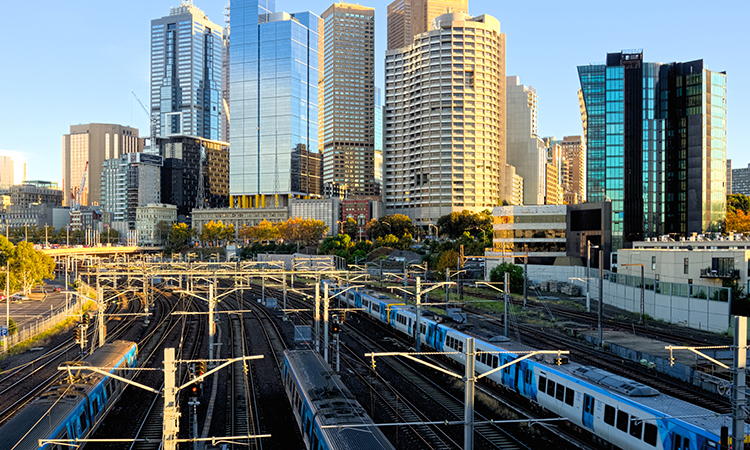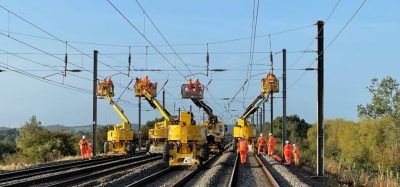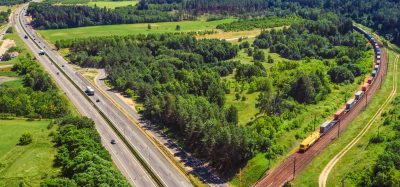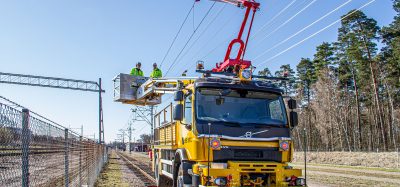ARA calls for urgent policy reforms to deliver a generational shift for Australian rail
Posted: 16 March 2021 | Global Railway Review | No comments yet
ARA’s Chief Executive Officer outlined that, with the relevant policy reforms, the country can deliver “a strong rail manufacturing and supply sector for the long term.”


The Australasian Railway Association (ARA) has called for urgent policy reforms to ensure that Australia capitalises on a rail construction boom that is set to generate more than twice the activity recorded at the peak of the mining boom.
A new report on the Australian rail supply chain, which was released on 15 March 2021, confirmed that more than $14 billion in rail construction activity is planned over the next five years, but reforms are needed to make the most of this wave of new spending.
ARA‘s Chief Executive Officer, Caroline Wilkie, said that mega projects currently underway across the country had the potential to deliver a generational shift in the rail industry and set the country up as a world leader in innovation and excellence.
Caroline said: “We have an opportunity to use this rare moment in time to create jobs, drive innovation and build Australia’s export potential. We need a fast and radical shift in thinking if we are to make the most of this wave of investment and set the country up for a strong rail manufacturing and supply sector for the long term.”
“For too long, Australia’s rail businesses have suffered inefficiencies as a result of a fragmented market, underinvestment and complex procurement and local content policies that constrain the industry’s ability to innovate and grow. If we don’t act on those issues now, we will squander the chance to benefit from the billions of dollars in investment to come over the next five years,” she explained.
Caroline added that projects like the Sydney Metro, Inland Rail, METRONET, Melbourne Metro and Cross River Rail provided a once in a lifetime chance to make meaningful and lasting policy changes. Accelerating technology adoption and a desire to use more local suppliers as a result of the pandemic heightened that opportunity.
“Now more than ever, we understand the value of strong local supply chains, but a more coordinated, national approach to rail policy is needed to support the growth of the rail industry here in Australia,” she said.
‘The Australian Rail Supply Chain’ report was prepared by BIS Oxford Economics and included a survey of rail businesses across Australia.
It has recommended nine areas of action to drive growth across the rail supply chain, including:
- Common objectives for planning, procurement and policy
- Procurement reform
- A national local content policy
- Review of regulation
- A focus on driving technology and innovation
- Promoting rail
- Skills development
- Sustainable rail funding
- Environmental sustainability and the circular economy.
The ARA is now working with the industry to develop a rail supply chain blueprint to progress each of the identified areas of action.
OUT NOW: The Definitive Guide to Rail’s Digital Future
The rail industry is undergoing a digital revolution, and you need to be ready. We have released our latest market report, “Track Insight: Digitalisation.”
This is not just another report; it’s your comprehensive guide to understanding and leveraging the profound technological shifts reshaping our industry. We move beyond the buzzwords to show you the tangible realities of AI, IoT, and advanced data analytics in rail.
Discover how to:
- Optimise operations and maintenance with real-time insights.
- Enhance passenger services through seamless, high-speed connectivity.
- Leverage technologies like LEO satellites to improve safety and efficiency.
Featuring expert analysis from leaders at Nomad Digital, Lucchini RS, Bentley Systems and more, this is a must-read for any rail professional.
Related topics
Cargo, Freight & Heavy-Haul, Funding & Finance, Regulation & Legislation, The Supply Chain








